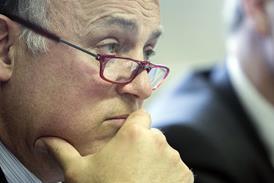The Parliamentary and Health Service Ombudsman is evolving to make it easier for people to have their complaints heard. People need to know it’s free and independent of the NHS, writes chair Julie Mellor
I read with interest your leader column about “how the NHS should deal with individual cases of poor care where those affected feel the provider involved has failed to resolve their concerns”.
We, the Parliamentary and Health Ombudsman Service, are the organisation that was set up nearly 50 years ago by Parliament to do exactly that.
We were established to investigate individual cases of care failure by NHS England.
We therefore thought it would be helpful to set out our role.
Outlining the ombudsman
Where people are not satisfied with a service provider’s response to their complaint, we want them to be confident to come to us as quickly as possible so that we can investigate, put things right for the complainant, and make sure any learning is fed back to the service provider, and quality or patient safety concerns to the relevant regulators.
If we find big or repeated issues we work with others to help them develop solutions.
‘We welcome that people recognise the need for our service’
We share our work with Parliament so they can hold the providers of public services to account, as we’ve done through our reports on midwifery and sepsis, which Parliament used as the basis for two hearings earlier this week.
We welcome that people recognise the need for our service. That’s why we have been changing so we can help more people by giving them an independent, impartial and formal decision on the complaint they bring to us.
Over the last year we investigated 2,199 complaints - six times as many as the previous year - and halved the time it takes to complete an investigation.
Outside the time limit
The next stage of our modernisation programme will focus on what people can expect from our investigations and our service.
We will be raising awareness of how we can help people so they will feel confident that there’s somewhere to go when they feel they’ve been let down by public services.
‘The service is free and independent of the NHS’
We want to make it easier for people to use our service, which is why I think it’s helpful to clarify the time bar issues, which were mentioned in your article.
The legislation governing our work says that people must bring their complaints to us within a year of them being aware of the events complained about.
However, we do have discretion to take on cases for investigation outside that 12 month time limit.
The things we consider before using our discretion include:
- whether there was a good reason for the complaint being brought to us out of time;
- whether an effective investigation is possible in light of the passage of time; and
- the seriousness of the case.
The important thing I want people to take away from this letter is that they do have somewhere to come when they feel the provider has failed to resolve their concerns, which is free and independent of the NHS.
Dame Julie Mellor is chair and ombudsman of Parliamentary and Health Ombudsman Service























No comments yet